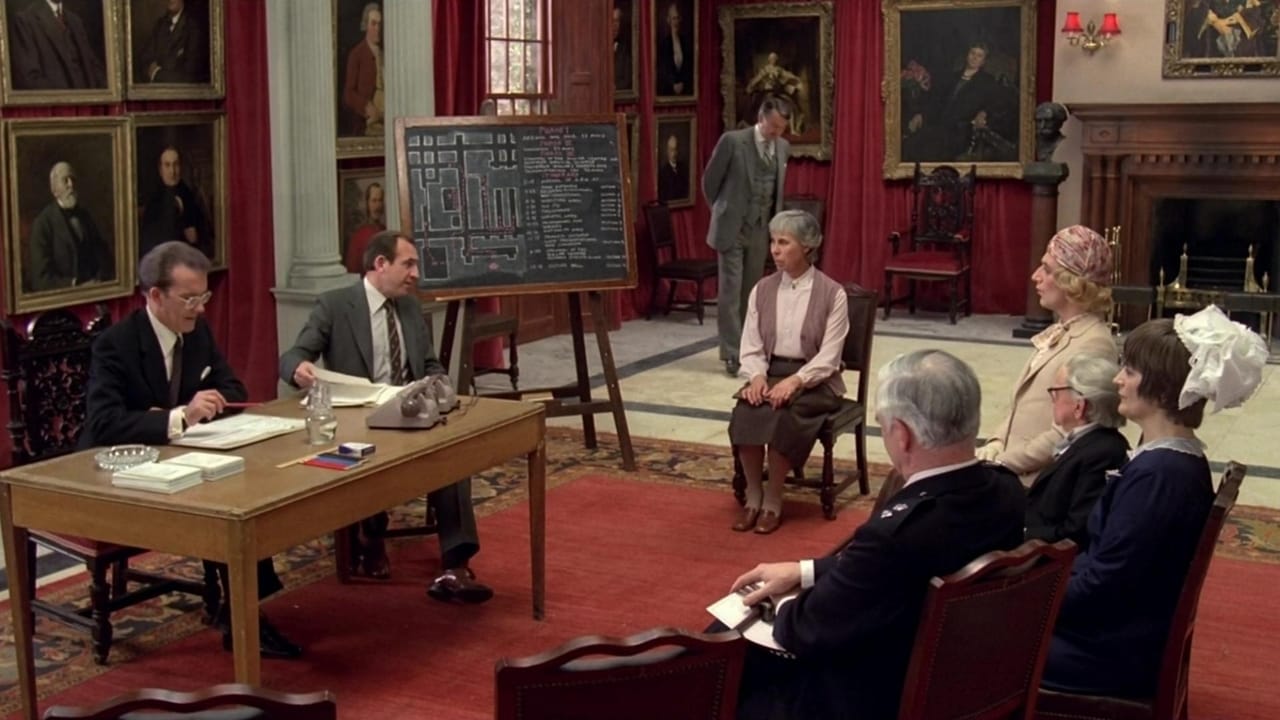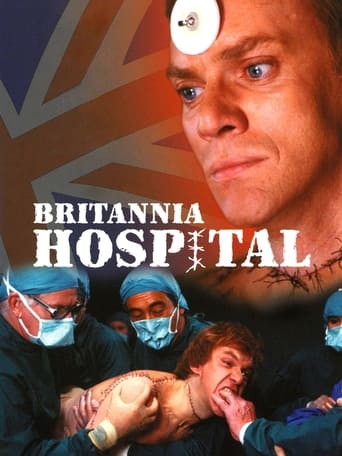

I saw this macabre comedy in the early 80's in Stockholm Sweden. Now we experience the revival of prof. Millar - impersonated by the very real and non-fictitious Paolo Macchiarini! But the laughter chokes on you. Thus sending an important message to present and future scientists. The film - at the time - made me sick and if I rated the film then, I would give it a "2". However, now in retrospective, I gave it a "9". Too bad Macchiarini never saw it - obviously. All the main actors performed extremely well, thus bringing to life a most - otherwise - unlikely medical treatments/surgery. The unfortunate Travis (Malcolm McDowell) affected by Millars overambitious actions illustrates the wide range of Malcolm McDowell's art of acting. Graham Crowden's impersonation of Prof. Millar is very convincing and brings forward a frightening scientist - hopefully very unusual in real life. Until Paolo Macchiarini showed up. I recommend "Britannia Hospital" to be included in the education at all medical schools on all levels all over the world. In order to bring a healthy perspective to the students.
... View MoreIt can be anybody's wild guess that most viewers would bring to their minds a sick nation which needs to be urgently cured come what may whenever they hear about a film with a wacky title-"Britannia Hospital". However, one has to bear in mind that "Britannia Hospital" is no ordinary infirmary as it is infested with numerous dubious characters intent on getting their personal agendas furthered at a time when the eponymous health establishment is getting all spruced up to celebrate its 500th anniversary. One can thus watch with customary mirth a scientist determined to produce the best brain in the world, an hospital official who would like to instruct its staff about the right manners in which British queen must be received, a reckless reporter who would like to stealthily film irregularities of an hospital etc. A long time before Romanian director Cristi Puiu burst on international scene with his absurd tale set in a Bucharest hospital, The Death of Mr. Lazarescu (2005), Lindsay Anderson-one of British cinema's greatest auteur had already made one of the best satires in the history of British cinema. Britannia Hospital is so brutal yet frank in its mission to expose horrendous absurdities of an hospital system that comparisons with Samuel Fuller's maverick "Shock Corridor" (1963) would not appear incongruous. Lindsay Anderson's film is a phenomenal treat for all Anglophobes/Britanophobes as he ruthlessly attacks whatever that is either dear to Britain or has a distinct British connection. Upon its release in 1982, a horrible time for Britain, this Lindsay Anderson film was butchered beyond recognition by some vested interests of British press. However, it is high time genuine film admirers make efforts to go beyond the realm of "Carry On" films as "Britannia Hospital" is the only perfect film which would make viewers jump with joy discovering why affordable,decent health care is still a matter of concern for most ordinary Britons.
... View MoreI've been wanting to see this, the last part of the "Mick Travis" (Malcolm McDowell) trilogy, for over a decade, and not sure why I waited until now. Perhaps it was unavailable back in the VHS days? Perhaps it was the relatively poor reputation in comparison with the two earlier films, If.... and O Lucky Man!, both of which I loved when I first saw them back in the 90s.Well, perhaps I shouldn't have waited. Seeing this film in isolation didn't do it any favors in all probability. It's a jumbled mass of incoherent ideologies and ideas played out against the backdrop of "Britannia Hospital" which is getting ready for a visit by the Queen Mother while a strike rages and a mob gathers demanding justice for an African dictator residing in the luxurious "first class" room at the top of the hospital. The satire on British class couldn't be any more obvious, and the misanthropy is equal in savagery with the strongest of Twain's or Vonnegut's work though not nearly on a par in quality. It's fitting, and not really surprising, that Travis should die as he attempts to report on the goings-on of mad scientist Professor Millar (Graham Crowden, in the most entertaining performance in the film), but what is surprising is how bland and dull his character is, how meaningless his end as he becomes something of a Frankenstein creature. The finish to the film, as Millar addresses a crowd composed of all the principal groups that have been arguing and fighting throughout, is moving in its way but seems utterly out-of-keeping with the lunacy that has gone before, and the wrap-up far too abrupt and forced.Honestly, I barely remember it a week later. A slightly positive mark for this DVD rental, because it did keep me entertained for a good chunk of it's running time, but that's probably being overly generous of me.
... View MoreI couldn't decide whether this is a good movie or a bad one, but I don't think it will leave you unshaken. People die in the corridors (probably painfully) because of the staff's neglect, and I remember being very shocked by the sheer callousness of this (but that's satire, after all). But the thing that stayed with me was the experiment in the new wing - creating a new human being from parts. Even though it has been years since I saw the film, just writing about it makes me feel sick again. The mad doctor's ghoulish interest in his patients was shocking, and the despairing expression on the transplanted head's face was worse - but when the new man finally bit the doctor's hand and the surgery staff literally tore the body's head off to free the doctor was nothing but revolting. It's strong stuff, really strong stuff, and even though I sometimes wish I hadn't seen the movie because of that scene alone, I don't know... it was a learning experience, after all, that was nicely summed up in the final shot of the disembodied brain quoting Shakespeare: when man wants to play god, the result can be indescribable.
... View More